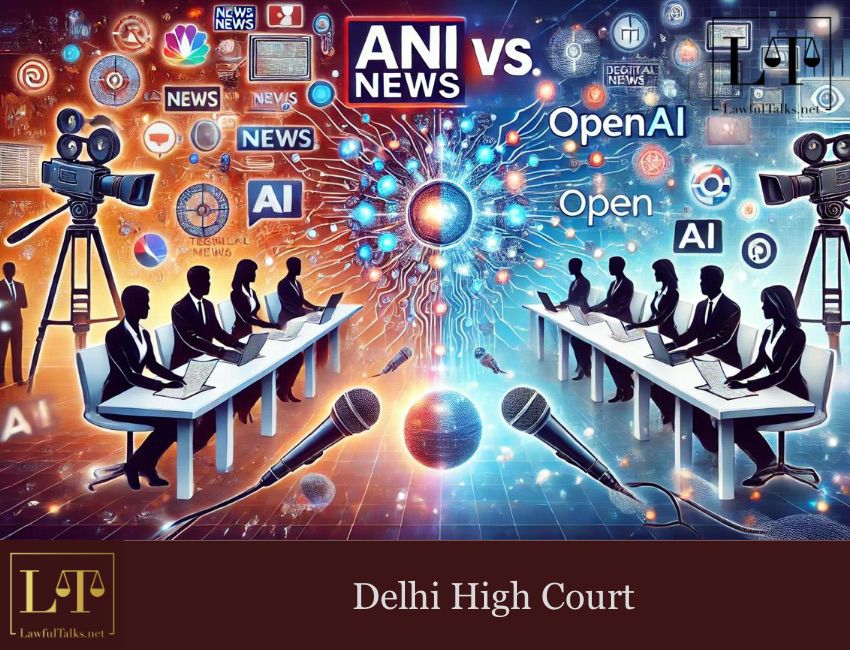Allahabad HC Sets Aside Afzal Ansari's Conviction, Allows Him to Continue as MP

In response to the copyright infringement case filed by Asian News International (ANI) in Delhi High Court, Open AI, the developer of ChatGPT, has argued that Indian courts lack jurisdiction over the case. Open AI contended that neither the company nor the cause of actions falls within the territorial jurisdiction of the Indian courts.The reasoning for the lack of jurisdiction is submitted that ChatGPT’s server and training data are located outside India, thereby its accessibility in India does not confer jurisdiction.

The reply comes in compliance with summons issued on November 19 by the Delhi High Court Single Judge Bench of Justice Amit Bansal, where ANI had alleged improper use of its material for training and operating ChatGPT and prayed for the deletion of training data.
OpenAI has highlighted that the deletion of training data would be in conflict with U.S. federal laws, which mandate the preservation of evidence in ongoing litigation. OpenAI is currently involved in a similar legal suit with the New York Times, thereby can’t comply with the data deletion prayer.
Further, the user policy was highlighted, which includes clauses mandating arbitration for disputes, thereby subjecting such disputes to the exclusive jurisdiction of courts in San Francisco, California. Thus, ANI, being an user of ChatGPT, will have to resolve its dispute in accordance with the user policy.
OpenAI has also argued that the Delhi High Court's Commercial Division lacks jurisdiction, asserting that the suit combines multiple causes of action, some of which do not qualify as "commercial disputes" under the Commercial Courts Act, 2015. It was contended that ANI’s defamation claims do not fall under the definition of commercial disputes as defined by the Act.
Addressing the copyright infringement claims, OpenAI contended that training a large language model (LLM) using publicly available online data does not constitute a violation under the Indian Copyright Act. It noted that Indian copyright law protects the expression of ideas, not the underlying facts or ideas themselves. OpenAI argued that the use of freely accessible information for machine learning purposes focuses on analyzing patterns and generating responses rather than copying or reproducing original works verbatim. This, according to OpenAI, aligns with the "fair use" exception under copyright law. Furthermore, it argued that ANI’s works, primarily consisting of factual news reports, are not subject to copyright protection in India.
OpenAI also claimed that ANI had attempted to manipulate ChatGPT by inputting specific excerpts of its articles as prompts to compel the model to reproduce its content. However, these attempts were unsuccessful, as ChatGPT generates unique responses based on its training and learned patterns, further demonstrating its capability to produce original text. It was also submitted that ChatGPT does not store or relay ANI’s works verbatim, reinforcing its position that there has been no infringement.
OpenAI also addressed the instances where the AI generates inaccurate or nonsensical information, including the potential of "hallucination.". In this regard, it was submitted that ANI failed to display any actual harm or damage to its reputation stemming from such outputs.
Lastly, OpenAI emphasized the change and the benefits of AI, which are enjoyed by humanity as a whole, and thus pleaded the court to dismiss the suit.

Akshaj Joshi
Law Student
Latest Posts
Categories
- International News 19 Posts
- Supreme Court 352 Posts
- High Courts 367 Posts





























































































































































































































































































































































































































































































































































































































































































































































